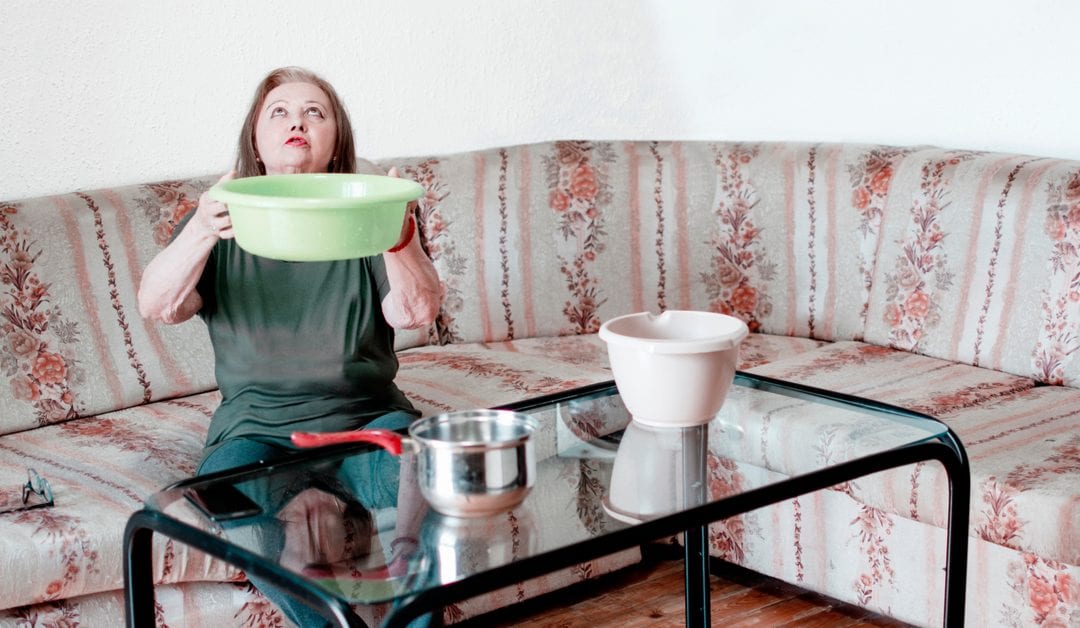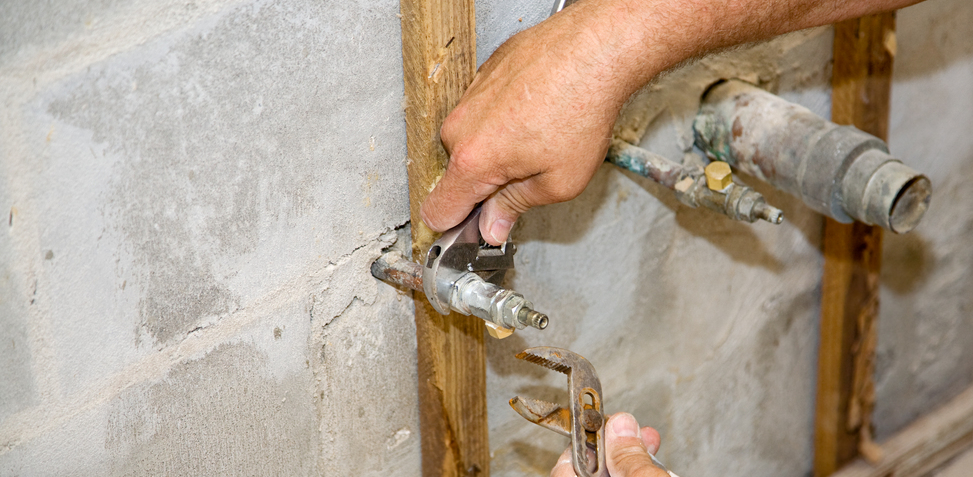Crucial Tips for Dealing with Plumbing in Older Homes
Crucial Tips for Dealing with Plumbing in Older Homes
Blog Article
Each person is bound to have their unique piece of advice in relation to Main Plumbing Issues Found in Old Houses.

Older homes commonly include charm, personality, and background, however they can likewise bring a host of pipes issues. Whether you're dealing with aging pipelines, low water stress, or leakages, knowing how to deal with these usual troubles is essential to maintaining a secure and useful home. In this overview, we'll discover the common pipes obstacles encountered by older homes and provide sensible services to keep your plumbing in leading shape.
Recognizing Common Plumbing Issues
Aging Pipes
Among the most typical issues in older homes is aging pipes. Depending on the era in which your home was constructed, the pipes could be made from products that have deteriorated in time, such as galvanized steel, cast iron, or perhaps lead. These materials can rust, become weak, or develop leaks, leading to water damage and possible health hazards.
Low Water Pressure
If you're experiencing low tide stress, maybe because of natural resources, rust inside the pipes, or old fixtures that are no more working effectively. This can be a major trouble, particularly in areas like showers and sinks.
Leaking Pipes
Leaks are an additional regular problem in older homes, commonly brought on by rusty or damaged pipelines. Even small leaks can result in considerable water damages, mold growth, and enhanced water bills otherwise resolved quickly.
Outdated Fixtures
Outdated pipes components such as faucets, commodes, and showerheads not only look old but may likewise be much less effective, vulnerable to leakages, or inappropriate with contemporary plumbing requirements.
Pipeline Deterioration
Corrosion is an usual problem in older pipelines, specifically those made from galvanized steel or cast iron. Corroded pipelines can limit water circulation, trigger discoloration, and eventually bring about leaks or pipe bursts.
Analyzing the Condition of Your Plumbing
Evaluating Noticeable Pipelines
Start by inspecting any noticeable pipes in your house, such as those in basements, crawl spaces, or under sinks. Seek indicators of deterioration, leakages, or corrosion, which can suggest underlying concerns.
Checking for Leakages
Check for leakages by checking areas around faucets, bathrooms, and under sinks. You can likewise monitor your water meter before and after a duration of no water make use of to detect covert leakages.
Water High Quality Screening
Older pipes can affect the quality of your water. Conduct a water high quality examination to look for pollutants such as lead, rust, or various other pollutants that might be introduced by maturing pipes.
Solutions for Typical Pipes Concerns
Changing Aging Pipes
If your home has old, degrading pipes, consider changing them with modern-day products like copper or PEX. This can be a considerable investment, yet it will prevent future concerns and boost the security and integrity of your plumbing system.
Dealing With Low Tide Stress
To repair low water pressure, begin by cleaning or replacing old fixtures and eliminating mineral build-up in the pipelines. If the issue persists, it may be needed to change areas of corroded pipelines.
Fixing and Replacing Dripping Pipelines
For tiny leaks, you can use pipeline clamps or epoxy putty as a short-lived solution. Nonetheless, it's best to replace dripping pipelines totally to prevent further damage.
Upgrading Fixtures
Upgrading old fixtures to modern, water-efficient versions can enhance your home's plumbing efficiency and reduce water consumption. Search for components with the WaterSense tag for the best performance.
Taking Care Of Pipeline Corrosion
If your pipes are rusted, replacing them with corrosion-resistant products like copper, PVC, or PEX is the best service. Regular examinations and water high quality maintenance can aid stop additionally deterioration.
When to Call a Professional
While some plumbing concerns can be managed with do it yourself services, there are times when it's best to call a professional. If you're dealing with major leakages, considerable deterioration, or are uncertain regarding the condition of your pipelines, a qualified plumbing technician can provide professional assessment and repair work.
Preventive Upkeep Tips
Regular Assessments
Routinely inspect your plumbing system for signs of deterioration. Capturing issues early can protect against pricey fixings down the line.
Water Stress Law
Guarantee your water stress is within the recommended variety to stay clear of emphasizing your pipes and fixtures. A plumbing professional can install a pressure regulator if needed.
Water Quality Upkeep
Install water filters or conditioners if your water top quality is poor. This can shield your pipelines and components from damages brought on by hard water or contaminants.
Proactive Pipeline Substitute
If your home has very old pipelines, consider positive substitute before significant problems occur. This can save you from emergency repair work and water damages.
Final thought
Handling pipes problems in older homes requires a mix of watchfulness, precautionary maintenance, and prompt upgrades. By comprehending the usual challenges and knowing when to seek specialist help, you can guarantee your plumbing system continues to be useful and trustworthy for many years ahead.
Common Plumbing Issues in Older Homes
Pipe corrosion
Pipe corrosion is a common plumbing issue in older homes. Several factors can cause pipes to corrode:
Water: Ironically, water is the number one cause of pipe corrosion. When water seeps into cracks in pipes, it can cause the metal to rust and break down, leading to leaks or even burst pipes.
Oxygen: Oxygen is another significant culprit in pipe corrosion. When oxygen interacts with water, it can cause the metal to oxidize and weaken.
Chemicals: Chemicals such as chlorine and fluoride can also contribute to pipe corrosion. These chemicals can react with the metal in pipes, causing them to break down over time.
Leaky pipes
Pipes that leak is one of the most common plumbing issues plaguing residents of older houses. While a small leak may not be a problem initially, it can lead to significant problems if left unaddressed. In addition, water damage can be very costly to repair and may cause damage to electric fixtures, promote mold growth and cause many other issues.
Worn-out fixtures
Older homes often have worn-out fixtures which may need replacement. Over time, the finishes on fixtures can wear down, exposing the underlying metal to corrosion. This can cause fixtures to leak or even break completely. It s best to have a professional plumbing contractor regularly inspect the fixtures in older homes and replaces them if necessary.
Faulty water heaters
A leaky water heater can cause severe damage to the home as it can be both a flood and fire hazard. Call a plumber immediately if it appears that the water heater might be leaking.
If the heater isn t working correctly, it could be because the pilot has gone out. The pilot light going out may indicate gas supply issues or leaks. It is also worth checking the thermostat to see if it needs to be adjusted.
If the water heater is making strange noises, it could be due to sediment buildup in the tank. Sediment can interfere with the heating elements and cause them to overheat. Overheating can damage the tank and shorten the lifespan of the water heater.
https://www.norfleetfamilyplumbing.com/blog/common-plumbing-issues-in-older-homes

I'm very intrigued by and I am assuming you appreciated our piece. Those who enjoyed our post plz remember to pass it around. Bless you for your time. Kindly come by our blog back soon.
Set An Appointment Report this page